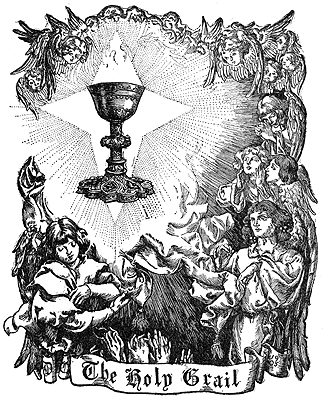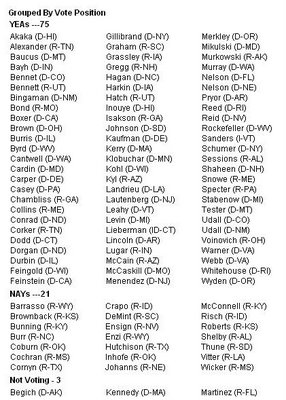 This was originally published as “Fair Use Copyright Law for Artists” – Published on Bourgeon, May 22, 2009. I think artists need to know that Fair Use copyright law exists, cause it’s important to understand what copyright gives you control over, and what it doesn’t give you control over.
This was originally published as “Fair Use Copyright Law for Artists” – Published on Bourgeon, May 22, 2009. I think artists need to know that Fair Use copyright law exists, cause it’s important to understand what copyright gives you control over, and what it doesn’t give you control over.
As you know if you read this blog regularly, I don’t usually write for Bourgeon. Bourgeon is a communal publishing point; a place for artists to share their words about their work. Every now and then though, I do man up and write articles that I think are relevant to the community. Bourgeon’s readership is the art-interested public, and artists themselves. If you’re reading this and you’d like to be published in Bourgeon, please don’t hesitate to contact me; I’m always interested to hear/learn more about what folks are up to.
———
Creators today may assert copyright ownership of their creations, but this does not necessarily limit the publics legal access to or usage of their work. Fair Use copyright law is intended to protect usage of a copyrighted work for criticism, comment, new reporting, teaching, scholarship, and research. In application and implication, Fair Use law has significant impact on creators, scholars, and journalists.
Fair Use law is different from some other areas of the law in that legality of an action depends on several factors. Harvard Law School Professor and copyright expert Charles Nesson wrote, “Fairness is a standard, not a rule.No simple definition of fair use can be fashioned, no bright line test exists.” The U.S. Copyright Office outlines four factors in determining whether or not usage of a copyrighted work is fair (legal):
“The purpose and character of the use.the nature of the copyrighted work.the amount and substantiality of the portion used. and, the effect of the use upon the potential market for or value of the copyrighted work.”
In order to clarify some of the inherent fuzziness in the law, practice communities (such as book publishers, movie producers, and the music industry) are empowered to create Statements of Fair Use. These Statements document common allowable usages, and outline (but do not define) the ways in which a member of the public may use copyrighted material without reasonable threat of legal repercussion.
On Friday May 8th, 2009, the Dance Heritage Coalition presented the results of their multi-year project to develop a new Statement of Fair Use for Dance-related Materials. The mission of the Dance Heritage Coalition is to improve the ability of the dance community to retain and utilize materials documenting the art form. According to Project Director Libby Smigel, through developing and publicizing the new Fair Use Statement, the Dance Heritage Coalition hopes to encourage increased access to and usage of Dance-related materials. Smigel asserted that one reason archival materials remain out of sight to the public and researchers is confusion over copyright, and fear of lawsuits. The press release for the event noted, “it hasnt been clear how librarians, archivists, and curators can legally use. images and texts.” The issues addressed in the new Dance-related Materials Statement are common to other art forms. Fair Use access issues apply to images, videos, notes, copies, and recordings of any type.
In an explanation of Fair Use issues on their website, the Copyright Alliance (a trade association dedicated to tracking copyright issues) explains, “An individual does not have the right to make use of anothers copyright work. [Fair Use may apply] when someone already has a copy of a copyrighted work and makes copies, distributes, performs, alters, or displays that work and the copyright owner subsequently challenges that use of the work as being an infringement. In that case, the person could raise a defense of fair use.” Fair Use law is not intended as a defense for people who are simply too lazy to seek copyright permission.
 The impact on the financial value of a copyrighted material is a central issue in settlement of Fair Use-defended law suits. Writing on his website, journalist Brad Templeton reported, “Famously, copying just 300 words from Gerald Fords 200,000 word memoir for a magazine article was ruled as not fair use, in spite of it being very newsworthy, because it was the most important 300 words – why he pardoned Nixon.” Artists would be well-served to empower their own usage and the usage of others by considering how fair use law applies to their work.
The impact on the financial value of a copyrighted material is a central issue in settlement of Fair Use-defended law suits. Writing on his website, journalist Brad Templeton reported, “Famously, copying just 300 words from Gerald Fords 200,000 word memoir for a magazine article was ruled as not fair use, in spite of it being very newsworthy, because it was the most important 300 words – why he pardoned Nixon.” Artists would be well-served to empower their own usage and the usage of others by considering how fair use law applies to their work.
The best way to be certain of the legality of ones usage of a copyrighted material is to seek copyright permission. In the event that copyright permission is not secured, Statements of Fair Use articulated by practice communities provide guidelines for usage, and defense in case of prosecution. To receive a copy of the new Fair Use Statement in Dance-Related Materials produced by the Dance Heritage Coalition, or to learn more about the document, visit www.danceheritage.org.

